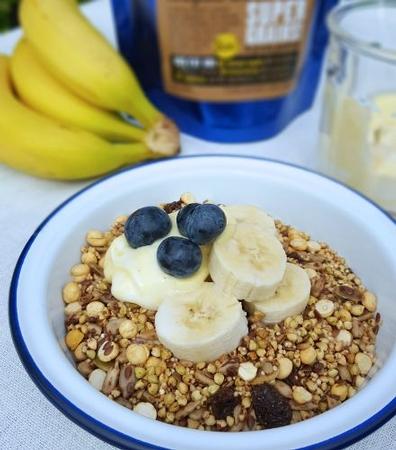
Spotlight on sugar allows salt to go unchecked
2 November 2016, 1:42PM
Be Media
The current trend towards eating less sugar may be allowing another potentially deadly ingredient to slip back into our diets at dangerous levels.
A recent survey showed that less than two per cent of New Zealanders considered low salt to the be the most important nutritional factor when choosing a breakfast cereal. Low sugar, however, was rated as the most important consideration by 41 per cent of respondents to The Great Kiwi Cereal Survey, carried out by local muesli manufacturer Te Atatu Toasted.
Te Atatu Toasted founder Clare Robinson says it’s great that people have embraced the message that too much sugar is bad for their health but they should not ignore other “food demons”.
“Too much salt is really just as bad as too much sugar; it just doesn’t get the same publicity at the moment,” she says.
Nutritionist Kate Walker, from Lifespark Nutrition, says many New Zealanders are exceeding the Ministry of Health guidelines, which recommend a salt intake of less than 2000mg per day, or around one teaspoon.
“Salt or sodium is important to help maintain and regulate body functions. However, we are eating more processed and packaged foods such as processed meats, including bacon, ham, sausages and salami, soups, stocks, breads, snack foods such as crisps, crackers and salted nuts, and processed breakfast cereals,” she says.
Eating too much salt can, over time, cause an increased risk of dehydration, high blood pressure, stroke and cardiovascular disease, she says.
“Many natural foods, even vegetables, contain salt so we are already getting enough salt in our diet from natural sources,” Kate says.
Kiwis should be looking for a breakfast cereal that contains less than 10g of sodium per 100g to reduce their risk of health issues, she says.
“A natural cereal that’s low in salt and sugar, eaten with yoghurt and fresh fruit, is a great way to start the day.”
New Zealanders are also looking for cereals that contains no preservatives, artificial colourings or flavours – this ranked as the second most important nutritional consideration in the survey. Gluten-free was ranked the third most important nutritional factor.
Clare has been carrying out tastings in supermarkets and at food shows since Te Atatu Toasted launched three years ago and says Kiwis are becoming more aware of the ingredients in their food. “They are asking more questions and reading the nutritional labels on food products,” she says.
She launched her range of mueslis to fill the gap in the market for a locally-produced wholefood cereal range that was low in sugar, salt and refined ingredients, and free of preservatives and artificial colourings and flavours.
“I want to lead the charge back to making and eating real food that’s delicious and affordable.”
More than 300 respondents completed The Great Kiwi Cereal Survey.
Te Atatu Toasted produces a range of three mueslis, Original Blend, Healthy Blend and Gluten-Free Muesli, and Coco-Crunchies breakfast cereal. All Te Atatu Toasted products are handmade in New Zealand and are available from selected stockists or online at www.teatatutoasted.co.nz
